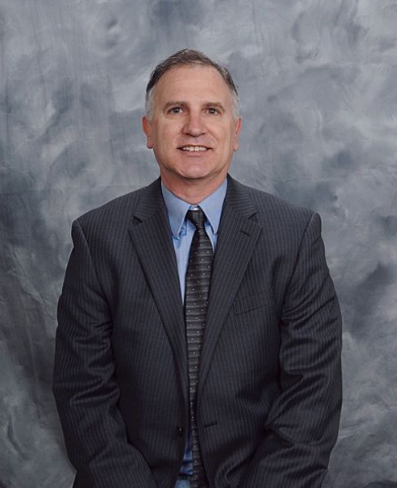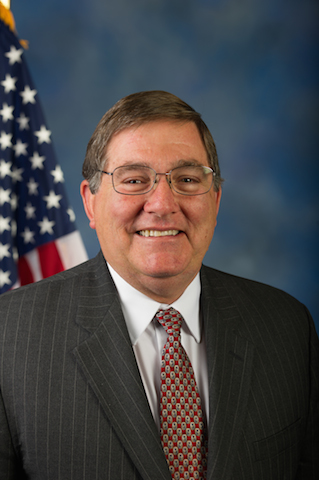Michael C. Burgess
See the following -
Burgess Bill Addresses Interoperability, the Leading Health IT Issue in the US
 Health care reformers around the country should be jumping up to thank Representative Michael C. Burgess (R-Texas), an MD who is working with his staff to write a bill to promote Health IT interoperability. Readers of Open Health News probably know that interoperability--in simple terms, the ability of any authorized user to read a medical record from any source--has emerged as one of the two top burning issues of health IT, the other one being the lack of usability of proprietary/lock-in electronic health records (EHRs).
Health care reformers around the country should be jumping up to thank Representative Michael C. Burgess (R-Texas), an MD who is working with his staff to write a bill to promote Health IT interoperability. Readers of Open Health News probably know that interoperability--in simple terms, the ability of any authorized user to read a medical record from any source--has emerged as one of the two top burning issues of health IT, the other one being the lack of usability of proprietary/lock-in electronic health records (EHRs).
Halamka: A Time of Great Turmoil in Healthcare IT Policy Making
 We are in a time of great turmoil in healthcare IT policy making. We have the CMS and ONC Notices of Proposed Rulemaking for Meaningful Use Stage 3, both of which need to be radically pared down. We have the Burgess Bill which attempts to fix interoperability with the blunt instrument of legislation. Most importantly we have the 21st Century Cures Act, which few want to publicly criticize. I’m happy to serve as the lightening rod for this discussion, pointing out the assumptions that are unlikely to be helpful and most likely to be hurtful. Read More »
We are in a time of great turmoil in healthcare IT policy making. We have the CMS and ONC Notices of Proposed Rulemaking for Meaningful Use Stage 3, both of which need to be radically pared down. We have the Burgess Bill which attempts to fix interoperability with the blunt instrument of legislation. Most importantly we have the 21st Century Cures Act, which few want to publicly criticize. I’m happy to serve as the lightening rod for this discussion, pointing out the assumptions that are unlikely to be helpful and most likely to be hurtful. Read More »
- Login to post comments
Humetrix Calls for Burgess Interoperability Bill to Add Provider/Patient EHR Exchange
 As a developer of several mobile personal health record applications, Humetrix supports Congressman Michael C. Burgess, MD, aim to accelerate electronic health record interoperability as expressed in his draft Health IT bill. We emphasize the need to facilitate health information exchange between providers and their patients, so that patients or their caregivers connect and exchange their personal health information with different providers as a key complement to efforts to improve health information exchange between provider systems.
As a developer of several mobile personal health record applications, Humetrix supports Congressman Michael C. Burgess, MD, aim to accelerate electronic health record interoperability as expressed in his draft Health IT bill. We emphasize the need to facilitate health information exchange between providers and their patients, so that patients or their caregivers connect and exchange their personal health information with different providers as a key complement to efforts to improve health information exchange between provider systems.
- Login to post comments
On the Need for Human-Centered Design in EHRs
 Health information technology (HIT) has become the hottest political issue in Washington. The healthcare industry in the United States is facing a crisis as medical facilities have spent hundreds of billions of dollars implementing electronic health record (EHR) systems, yet patients and the physicians and nurses that care for them are seeing few benefits. Congress has been holding hearings focused on detailing the problems and trying to write legislation that will provide a solution to the crisis. The HIT interoperability bill drafted by Rep. Michael C. Burgess (R-TX) is one example. These are welcome first steps. However, none of the bills currently before Congress, and none of the hearings, are addressing the two most important issues facing medical providers today. These are lack of EHR usability, and the inability to have a patients’ entire medical record at the point of care.
Health information technology (HIT) has become the hottest political issue in Washington. The healthcare industry in the United States is facing a crisis as medical facilities have spent hundreds of billions of dollars implementing electronic health record (EHR) systems, yet patients and the physicians and nurses that care for them are seeing few benefits. Congress has been holding hearings focused on detailing the problems and trying to write legislation that will provide a solution to the crisis. The HIT interoperability bill drafted by Rep. Michael C. Burgess (R-TX) is one example. These are welcome first steps. However, none of the bills currently before Congress, and none of the hearings, are addressing the two most important issues facing medical providers today. These are lack of EHR usability, and the inability to have a patients’ entire medical record at the point of care.
Rep. Burgess' Office Releases Draft Interoperability Bill for Discussion
 The office of Rep. Michael Burgess, MD (R-TX) released a draft of the interoperability bill that they have been working for the past several months on Friday. Rep. Burgess, one of the few physicians in Congress, has been working very hard with his staff to come up with legislation that can fix the current Health IT "lock-in" crisis. This is a bipartisan effort that has full backing from the top leadership in Congress. The staff is seeking input from the Health IT community on the draft bill. Burgess's office will take comments on the draft through March 13. Rep. Burgess' staff was kind enough to provide Open Health News with a copy of the draft legislation. We have posted the entire draft bill as is below and will be writing some our thoughts over the next few days.
The office of Rep. Michael Burgess, MD (R-TX) released a draft of the interoperability bill that they have been working for the past several months on Friday. Rep. Burgess, one of the few physicians in Congress, has been working very hard with his staff to come up with legislation that can fix the current Health IT "lock-in" crisis. This is a bipartisan effort that has full backing from the top leadership in Congress. The staff is seeking input from the Health IT community on the draft bill. Burgess's office will take comments on the draft through March 13. Rep. Burgess' staff was kind enough to provide Open Health News with a copy of the draft legislation. We have posted the entire draft bill as is below and will be writing some our thoughts over the next few days.
Tech Rivalries Impede Digital Medical Record Sharing
Since President Obama took office, the federal government has poured more than $29 billion into health information technology and told doctors and hospitals to use electronic medical records or face financial penalties. But some tech companies, hospitals and laboratories are intentionally blocking the electronic exchange of health information because they fear that they will lose business if they share information on patients with competing providers, administration officials said. In addition, officials said, some sellers of health information technology try to “lock in” customers by making it difficult for them to switch to competing vendors.
- Login to post comments
Health Datapalooza 2017
Health Datapalooza brings together a diverse audience of over 1,600 people from the public and private sectors to learn how health and health care can be improved by harnessing the power of data. The conference brings data to life in ways that matter in health and health care. Each year, the meeting serves as a trusted gathering place for thought leaders and innovators that build momentum toward a vibrant health information economy. This year's conference promises to bring new energy to an action-packed event featuring top speakers representing a variety of industries. The conference brings data to life in ways that matter in health and health care. Each year, the meeting serves as a trusted gathering place for thought leaders and innovators that build momentum toward a vibrant health information economy.
- Login to post comments